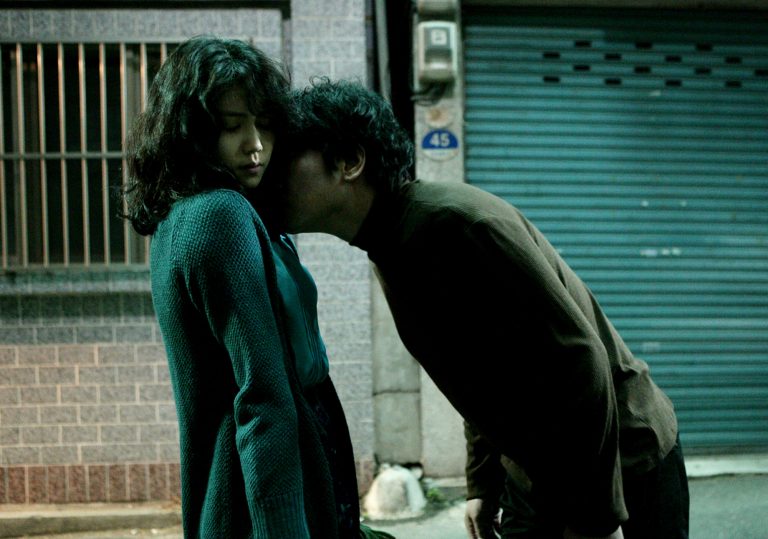Park Chan-wook’s Thirst is an unforgettable and unflinchingly human exploration of the dichotomous emotional responses that come with sinful behavior filtered through vampiric lore.
While Bong Joon-ho may have been the pioneer who brought South Korean cinema into the mainstream consciousness with his Oscar-winning smash hit Parasite, the country has long been a leader in world cinema. Free from standard conventions and untethered from studio demands and restrictions, Korean filmmakers have been telling some of the most daring and resonant stories in the most exciting ways for over two decades, subverting genres even as the country’s most accomplished storytellers completely redefine them. At the forefront of this movement since the very beginning has always been Park Chan-wook, the visionary provocateur behind such acclaimed hits as 2003’s Oldboy and 2018’s The Handmaiden. Often characterized by the boldly unwavering nature with which he approaches his topics both visually and thematically, and the dark side of humanity he exposes with each outing, his films may defy genre classification but they each provide an unforgettable and uniquely human experience. With Thirst, Park turns what begins as an attempt of selfless sacrifice into a journey of unquenchable licentiousness and carnal desire.
The rawness of lust – for sex or for blood – is starkly displayed with unflinching imagery and, more importantly, conflicting emotionality. Sang-hyun (Song Kang-ho), a Catholic priest who provides ministry to the patients in a hospital, is frustrated that he cannot do more to help the dying patients under his care, and, plagued with sadness and self-doubt, he decides to partake in an experiment to find a vaccine for a deadly virus. When the experiment fails and all the volunteers are infected with the fatal disease, Sang-hyun receives a blood transfusion and is the only one to make a complete and rapid recovery. The devout parishioners of his congregation are quick to laud him as a miraculous healer, and the news spreads far and wide, reaching a childhood friend and his family. Unbeknownst to anyone, Sang-hyun’s lust is suddenly awakened by an urgent carnality from which he spent his life running, and it is this dilemma on which the film thrives. As his priestly robes morph into bat-like wings and he develops superhuman agility and strength, he also develops some extreme urges, both of a sexual and murderous nature. But he doesn’t lose his desire to do good nor his guilty complex, and we see that the stronger these irresistible urges become and the more he acts on them, so does his self-loathing.

In contrast and doomed to be in love is Tae-ju (Kim Ok-bin), a young woman who was abandoned by her parents as a baby and raised by the family on whose doorstep she was unceremoniously dropped off. Her adoptive family is unkind, forcing her to marry the emotionally abusive son and to cook and clean for her mother-in-law. When Sang-hyun joins the family game night, Tae-ju is appreciative of his kindness, and, upon learning of his vampirism, becomes enchanted by the possibility of changing her miserable existence. She manipulates his newfound temptations against him, seducing him into sharing his blood. But where Sang-hyun was careful and caring with how he acted on his urges, Tae-ju becomes ruthless. She doesn’t just want blood, she wants the blood of freshly murdered victims. What is to him a curse, a hellish burden, is to her a heavenly gift; where he is victim to his condition, she is liberated by it.
Many vampire films blend sexuality and violence, but Thirst doesn’t just parallel them, instead completely blurring the line, essentially combining all passion under a single category; we witness as sex becomes bloodlust and violence becomes sexual, and in this way Park is able to create a shocking film, but one that never gets lost into the pitfalls of gratuity. On a basic level, it’s a descent into madness, but on a more nuanced level it becomes clear that it’s more than that. To Sang-hyun, it’s a descent from upstanding righteousness into absolute moral decay and an unflinching display of the destruction such moral degradation causes – and most importantly, the effect that has on the psyche of the perpetrators. To Tae-ju, it’s a cautionary tale of jumping into an irrevocable decision headfirst, the dangers of desperation both on the self and on those around you.
The unflinching nature of the intense moments of body horror may be repellant to some, but the effects are never flashy or excessive (though no less impressive for it) and always used only to heighten the emotional component of the story. As much as this is visually terrifying, it’s far more so an existential horror about not just that which is out of your control, but about when you yourself become the uncontrollable.
Thirst was released on July 31, 2009. The film is available to watch on digital and on demand in select countries.

